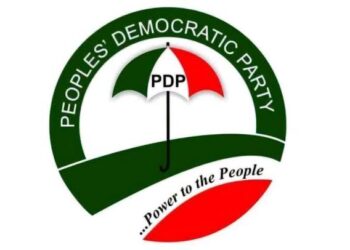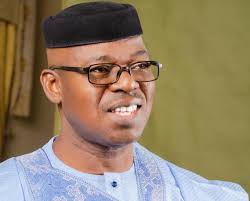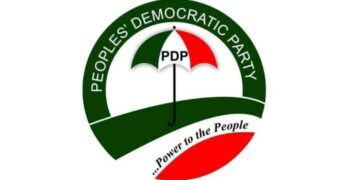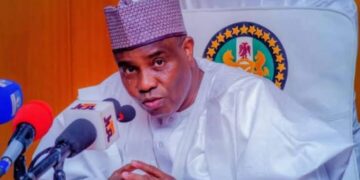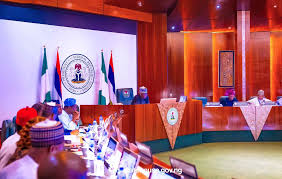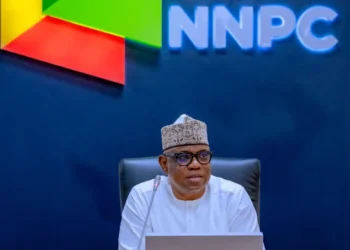The Federal Government of Nigeria is set to raise $10 billion through public-private partnership (PPP) initiatives to address the persistent challenges in the nation’s power sector. This ambitious plan, aimed at achieving uninterrupted electricity supply within the next decade, was outlined by the Minister of Power, Adebayo Adelabu, during a strategic meeting with the Director-General of the Infrastructure Concession and Regulatory Commission (ICRC), Dr. Jobson Oseodion Ewalefoh.
Minister Adelabu highlighted significant issues plaguing the power sector, such as vandalism of transmission facilities and outdated infrastructure, which have severely impacted the stability of electricity supply nationwide.
Recently, the Transmission Company of Nigeria (TCN) reported an attack on a construction site for a new 330/132/33Kv transmission substation in Obajana, Kogi State. Similarly, last month, 17 northern states experienced a blackout after bandits damaged the Shiroro-Kaduna transmission lines in Niger State.
Adelabu emphasized that addressing these obstacles requires substantial investment, estimating that around $10 billion is needed to achieve 24-hour electricity supply across the country. He acknowledged that the government alone cannot meet this financial demand, given the pressing needs in other critical sectors. He stated that the solution lies in partnering with the private sector through PPPs, allowing the government to maintain ownership while utilising private sector expertise and resources.
According to Adelabu, concessions are a viable approach to mobilize the required funds, optimise existing infrastructure, and develop new power assets.
During the meeting, both Adelabu and Ewalefoh discussed strategies for leveraging PPP arrangements to bridge the investment gap. Adelabu noted that private sector involvement is essential for mobilizing capital and enhancing the efficiency of power infrastructure. Dr. Ewalefoh reinforced this perspective, explaining that the ICRC’s regulatory framework aims to streamline the process of attracting private investment. He emphasized that PPPs not only provide much-needed capital but also bring in technical expertise crucial for optimising existing systems and expanding the power grid.
Ewalefoh highlighted the role of the ICRC in facilitating PPPs, noting that the commission’s framework is designed to simplify regulatory procedures while maintaining strict oversight to ensure only capable firms engage in these partnerships. To boost investor confidence and streamline project delivery, the ICRC has implemented a six-point policy focused on fast-tracking PPP agreements. The policy includes specific conditions where failure to meet terms could lead to the automatic nullification of contracts, a measure aimed at enhancing accountability and preventing delays.
The government officials underscored the importance of leveraging private sector expertise to address the multifaceted challenges in the power sector. Adelabu pointed out that involving private partners will not only help raise the necessary funds but also bring specialised skills required for improving the transmission network, enhancing grid efficiency, and reducing losses in the distribution system. He noted that a collaborative approach is vital for achieving the long-term goal of providing stable and reliable electricity supply across Nigeria.
The push for PPPs is part of a broader strategy to revitalize Nigeria’s struggling power sector, which has been hindered for years by inadequate funding, poor maintenance, and systemic inefficiencies. The Federal Government’s plan aims to attract significant foreign and domestic investments to bridge the infrastructure gap, modernise the power grid, and meet the growing electricity demand.
Dr. Ewalefoh emphasized that securing funding is only one aspect of the solution. Addressing structural and operational issues within the power sector is equally important. He highlighted that a collaborative approach involving both public and private stakeholders is necessary to build a sustainable and resilient power system that can support Nigeria’s economic development.
He noted that the ICRC’s regulatory framework is designed to create a conducive environment for investors while ensuring projects are delivered effectively.The initiative reflects the Federal Government’s commitment to improving Nigeria’s power supply. By engaging capable private sector partners and with the support of the ICRC’s regulatory oversight, the roadmap to a stable and reliable power supply is gradually taking shape.
Although significant challenges remain, the strategy aims to set Nigeria on a path to achieving uninterrupted electricity supply, which is crucial for long-term economic growth and development.The Federal Government of Nigeria is set to raise $10 billion through public-private partnership (PPP) initiatives to address the persistent challenges in the nation’s power sector.
This ambitious plan, aimed at achieving uninterrupted electricity supply within the next decade, was outlined by the Minister of Power, Adebayo Adelabu, during a strategic meeting with the Director-General of the Infrastructure Concession and Regulatory Commission (ICRC), Dr. Jobson Oseodion Ewalefoh.
Minister Adelabu highlighted significant issues plaguing the power sector, such as vandalism of transmission facilities and outdated infrastructure, which have severely impacted the stability of electricity supply nationwide.He emphasized that PPPs not only provide much-needed capital but also bring in technical expertise crucial for optimising existing systems and expanding the power grid.



